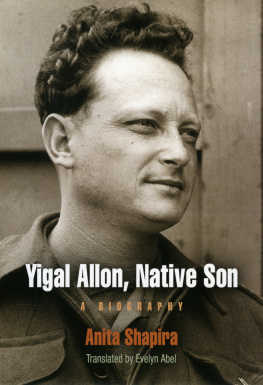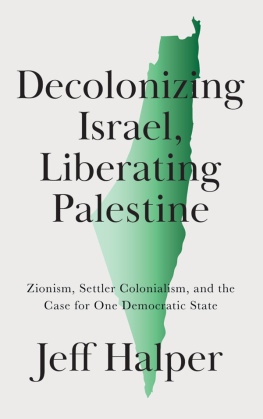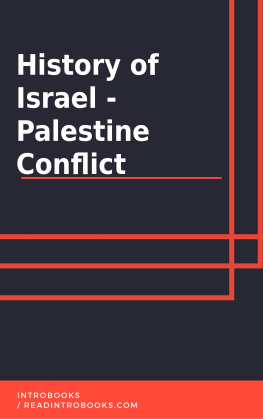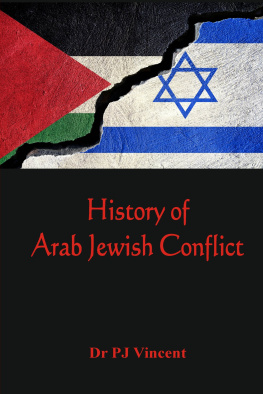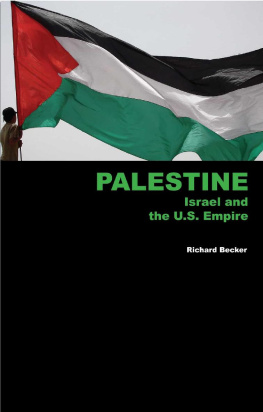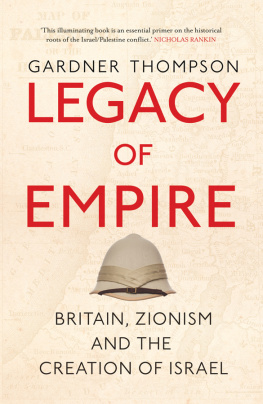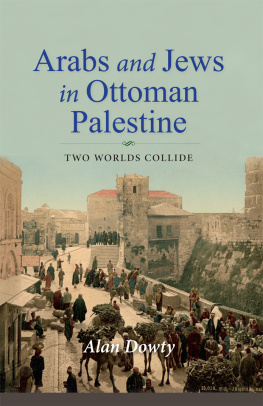Footnotes in this volume are reserved for direct quotes; the sources that served me in my writing are listed in bibliographies at the end of each chapter, and readers are invited to make use of them for a more detailed picture and elaborate analysis. Each chapter also includes suggested further readings available in English-language editions. A list of suggested further readings in Hebrew is available on the Schusterman Center for Israel Studies website at www.brandeis.edu/israelcenter/shapira.html.
THE EMERGENCE OF THE ZIONIST MOVEMENT
In fact, fifty-one years intervened between that first congress and the State of Israels Declaration of Independence on May 14, 1948. What began as an evanescent movement whose most ardent supporters never believed that the objective of Jewish sovereignty in Palestine would be achieved in their lifetime became a real national movement that shaped a society and nation and built a state.
The Zionist movement was born amid stormy controversy that attends it to this day, although the focus of contention varies. What was Zionism, anyway? A renaissance movement directed toward reshaping the Jews, Jewish society, Jewish culture? A colonization movement aiming to establish a Jewish territorial entity that would grant the Jews what other peoples had: a homeland where they could find refuge? A spiritual or political movement? Could Zionism resolve the question of Jewish identity in an era of rising secularization and acculturation, with religion no longer able to save the Jews from atomization? Could it relieve the Jewish existential anxiety that had been on the rise since the last quarter of the nineteenth century, when a racism-oriented antisemitism emerged that for the first time in history refused Jews the option of conversion as an escape from the Jewish fate? These questions, which attended the internal Zionist disputes from the beginning and were posed by the movements own adherents, bore fateful implications for Zionisms character and development, its strengths and weaknesses.
At the same time, another controversy raged around the Zionist movement, fomented by its adversaries, who held up a mirror that revealed Zionisms every weakness, each ideological and practical flaw. In 1881 Dr. Yehuda Leib Pinsker published a pamphlet titled Auto-Emancipation. Writing in the wake of the wave of pogroms that engulfed the Jews in the Tsarist Empires Pale of Settlement (known as Suffot Banegev, Storms in Southern Russia), Pinsker analyzed antisemitism in depth and concluded by calling for the establishment of a Jewish homeland: a place where Jews, no longer a minority among the gentiles, would live not as guests, but as masters. The possession of a territory where Jews were masters of their own destiny would radically change the twisted relations that had existed for generations between Jews and the peoples they had lived among.
Though this debate was protean, the fundamental question it raised did not change from the earliest days of the Zionist idea: would Jewish salvation come about as a result of a universal realignmentthrough either the triumph of liberalism and democracy or the victory of the communist revolution that would redeem the worldor would it require a specific Jewish initiative, separate from the great global one? One element of the debate involved questioning the feasibility of the Zionist enterprise, since the Ottoman regime opposed the immigration of Jews and their settlement in Palestine. Palestine was not an empty country; some half a million Arabs lived there. What would the Zionists do with them? Force them out, or allow them to remain? Would they be declared aliens in their own homeland? And if the Zionists did not discriminate between them and the new immigrants, who could guarantee that in time the Jews would not become a minority in their own country and find themselves once again in the situation they had sought to escape?
While the liberal Jews posed questions of feasibility, the Jewish revolutionaries raised moral issues: let us assume, they said, that contrary to probability the Jews succeed in putting down stakes in that impoverished, economically backward country with no natural resources and without the capacity to absorb millions of immigrants. Would it be morally justifiable to transform the Arabs from masters of the land into a minority?
The anti-Zionist discourse did not embrace only the issue of what was possible and desirable; it also included the religious aspect. Pinsker, and later Herzl, did not suggest Palestine as the only possible location of the proposed Jewish state, but they did mention it. However, from the moment the idea took shape, it was They saw an attempt to bring about redemption by natural, man-made means as rebelling against divine decrees, as Jews taking their fate into their own hands and not waiting for the coming of the Messiah. Consequently ultra-Orthodox Jews vehemently opposed this perilous heresy.
Opposition to Zionism therefore unified many and varied groups: ultra-Orthodox and assimilationists, revolutionaries and capitalists, dreamers and pragmatists. There were those who opposed the idea because they believed that a better solution to the Jewish problem could be found within a more universal framework. Other opponents were concerned for their status as citizens with equal rights in the countries where they lived. Still others thought Zionism either too revolutionary or excessively conservative.


